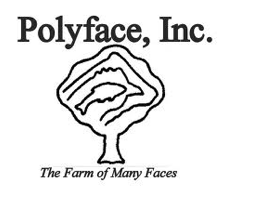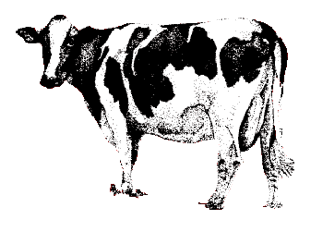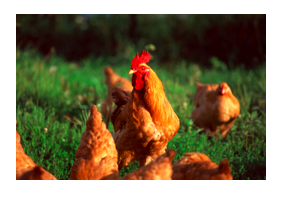 What I learnt as I sat and listened to Joel Salatin of Polyface Farms was really quite common sense, yet … as they say …. common sense isn’t always so common! Even talking with another delegate, a farmer based in NSW Hunter Valley, highlighted this. He had suggested that after reading a number of Joel’s books, he didn’t know wether to laugh or cry. Yeah, I understand why. Our farming community has been so trapped into a certain way of doing things for so long that to think along “the Ployface way” would be to break with all the tradition they know so well. To change or part from this tradition would scar the socks off me too, if that’s all I’d known.
What I learnt as I sat and listened to Joel Salatin of Polyface Farms was really quite common sense, yet … as they say …. common sense isn’t always so common! Even talking with another delegate, a farmer based in NSW Hunter Valley, highlighted this. He had suggested that after reading a number of Joel’s books, he didn’t know wether to laugh or cry. Yeah, I understand why. Our farming community has been so trapped into a certain way of doing things for so long that to think along “the Ployface way” would be to break with all the tradition they know so well. To change or part from this tradition would scar the socks off me too, if that’s all I’d known.
I love Joel’s passionate style, identifying himself as a “bio-terrorist” because he dares to free-range his animals on pasture and inoculate their bedding with beneficial bacteria. He is, after all, in the “land healing ministry” with “spiritual co-workers for the salvation of nature”. Some pretty interesting language coming from this self confessed Christian Libertarian Capitalist.
He suggests that a farming community that has invested so heavily into capital intensive single-use infrastructure gets locked into a way of doing things, so he offers “salvation” by following “the way”. The way involves a winter carbonaceous diaper (yes, you read it correctly) that is deep bedding of carbon rich materials like wood shavings to a depth of 1 to 2 metres (yes, you read it correctly again) – 2 metres!! That’s 3 to 6 foot in the old scale. Now most farm buildings aren’t set up to handle 1/2 metre let alone 2 but what this “diaper” does is soak up all the nitrogen rich manure and urine from his herd of cows who have been locked into the barn for the winter.
Anyone doing a bit of composting theory would immediately realise this is an ideal mix for compost but would need to be turned to speed up the decomposition process. Exit the cows and enter the “pig-aerator” (yep, you’ve read it correctly once again). Corn grain that has been previously broadcast into the mix has developed some beautiful mycorrhizal symbiosis and actinomycete bacteria in these anaerobic conditions. And the pigs just love it! As the pigs go scavenging through the diaper in search of these granular morsels, the mix is turned and turned and turned. Rock minerals and wood ash are added to the heap as a delicious nutrient rich plant growing media emerges. The result is 100’s of tonnes of compost without the use of machinery or petroleum. I can see salvation coming!
 Then in spring comes the army of chicken pullets raised in the barn after it’s been cleared out and the pigs are left to graze on wild prairie grasses (their own personal salad bar) in the paddocks and into the surrounding forests. The cows are rotated onto a new position (or allocation) of grass every day closely followed by the chook tractor 3 days later to maximise the potential for gobbling up the fly larvae and any parasites from the cows, kicking and scratching, as they do, spreading the manure as fertiliser for the pasture to regrow. Forest land is regenerative and saves thousands of dollars in grain feed. It’s a fabulous system, making economic and ecological sense. Hallelujah!! Salvation is here.
Then in spring comes the army of chicken pullets raised in the barn after it’s been cleared out and the pigs are left to graze on wild prairie grasses (their own personal salad bar) in the paddocks and into the surrounding forests. The cows are rotated onto a new position (or allocation) of grass every day closely followed by the chook tractor 3 days later to maximise the potential for gobbling up the fly larvae and any parasites from the cows, kicking and scratching, as they do, spreading the manure as fertiliser for the pasture to regrow. Forest land is regenerative and saves thousands of dollars in grain feed. It’s a fabulous system, making economic and ecological sense. Hallelujah!! Salvation is here.
This is just one system. Joel also explains his chicken/turkey housing combinations, his pig-rabbit-chicken racking house that best uses vertical space and then moves on to processing. It’s the gory fact of meat eaters, that the animal needs to be killed for us to feed on it.
 But in Joel’s typical descriptive sermon style, he shows us that there is “no life without death” and emphasizes the sacredness towards the sacrifice of death. He suggests that our food system has prostituted itself, like “the harlot who has a one-night-stand” without building relationship. Yes, we have lost our relationship with our food source … and oh so evident when school kids still think that chicken nuggets are an anatomical part of the bird. Research apparently reports that food is even better digested when accompanied by a story, so it becomes a farm community event to process their livestock, giving honour to a life well raised, stress & chemical free and dignity in death.
But in Joel’s typical descriptive sermon style, he shows us that there is “no life without death” and emphasizes the sacredness towards the sacrifice of death. He suggests that our food system has prostituted itself, like “the harlot who has a one-night-stand” without building relationship. Yes, we have lost our relationship with our food source … and oh so evident when school kids still think that chicken nuggets are an anatomical part of the bird. Research apparently reports that food is even better digested when accompanied by a story, so it becomes a farm community event to process their livestock, giving honour to a life well raised, stress & chemical free and dignity in death.
There is a challenge that follows. One that shifts the paradigm of all supporters of farmer’s markets but one that is easy to understand. We consumers are not doing our farmers justice by simply sampling their wares. For these markets to be viable we need to be there in force, our trolleys heavily laden with produce, homeward bound. The number of farmers returning to their farms with unsold stock is disappointing … for everyone.
So Polyface has turned it’s back on Farmers markets opting instead for farmgate sales and direct purchase box systems along with supply to local restaurants. Using internet, globalisation has re-localised their goods and services.
Not only practical solutions, but Joel Salatin also offers some spiritual and emotional guidance and encouragement for farmers both young and old. He makes farming “sexy” again, attracting the likes of young environmental entrepreneurs; he also offers longevity of financial and human resources through apprentices and traineeships.
We leave, being challenged to look at our weak link as a way to access creativity and innovation and not give up. We are encouraged to learn: “if it’s worth doing then it’s worth doing poorly first” so we learn a better way next time. This is the attitude that drives us forward and allows us all to “dream beyond what you think is possible”. Joel Salatin and Polyface Farms have a unique system that does offer salvation through a “land healing ministry”. Amen.




 Twitter
Twitter Facebook
Facebook
Wow you are right. Farming is so industrialized these days, they have lost the love for the land and animals. The farmers today are driven by the bottom line not the sustainability of the land. Would have been great to hear Joel speak.
This is an outstanding article. I have heard about this ‘diaper’ being used before over here in the States, but here in South Florida, a majority of our land is urbanized (except for a bit of farmland – and they’re pushing to slowly do away with the Everglades) – do you have any solutions for backyard gardeners who don’t have pigs and cows and such?